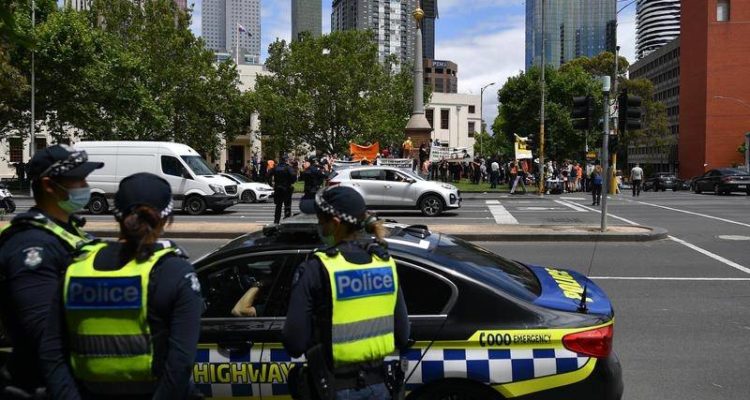Neo-nazism and other far-right extremist ideologies are a growing threat in Victoria and are putting marginalised groups at risk of violence, a new report says.
In the 150-page report tabled in state parliament on Tuesday, the Legal and Social Issues Committee delved into the rise of far-right extremism within Victoria.
It found declining mental health, social isolation and economic insecurity brought on by the COVID-19 pandemic has stoked far-right extremism.
Misinformation, conspiracy theories peddled on social media and the normalisation of anti-immigration rhetoric in mainstream media have also put vulnerable people at risk of radicalisation and made them more susceptible to racist narratives, it said.
Multicultural groups, women and LGBTQI members were identified as common targets of far-right extremists.
The Greens-initiated inquiry was prompted by a neo-Nazi gathering in the Grampians in January 2021 and the erection of gallows outside parliament as MPs debated pandemic legislation in November.
Far-right extremism refers to people or organisations who promote exclusionary nationalism, oppose democratic principles and processes, and favour authoritarianism
It includes groups who consider violence a legitimate way to achieve ideological goals.
The movement has always existed but re-emerged in the middle part of the 2010s before being exacerbated by the COVID-19 pandemic, Victorian Greens leader Samantha Ratnam said.
Read the article by Callum Godde and Mibenge Nsenduluka in The Canberra Times.

